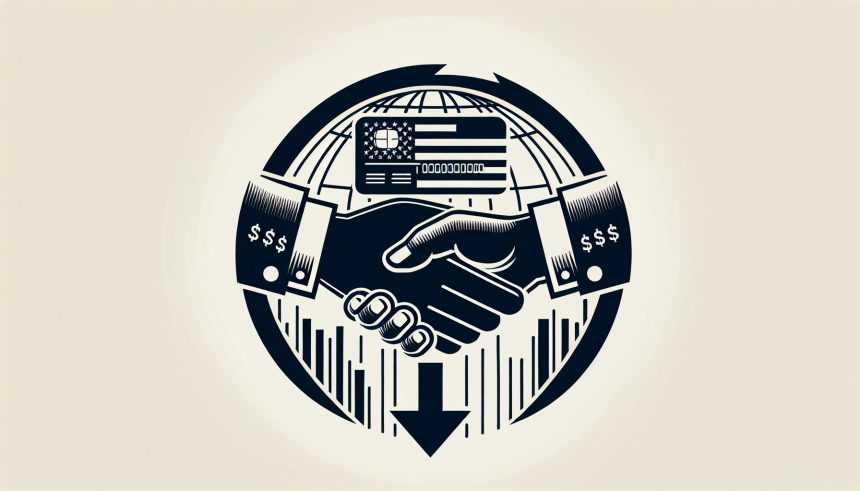JPMorgan Chase & Co, the US investment bank, has announced a partnership with France’s leading payment network, Cartes Bancaires (CB). This represents a significant step towards reducing card payment expenses for French clients.
The alliance aims to improve customers’ transaction experiences by decreasing card payment costs. This strategic move boosts JPMorgan’s commitment to providing cost-effective services, as well as increasing CB’s visibility in the US financial realm.
By the end of 2024, it is expected that a large number of JPMorgan’s merchant clients, including major US businesses, will transact through the CB network. This move is seen as an alternative to services provided by card networks such as Visa and Mastercard and could potentially alter payment patterns in e-commerce.
The CB network aims to simplify transactions for businesses and customers, making payments faster, more secure, and potentially cheaper. It could also broaden CB Network’s reach, reaching consumers that traditional card networks cannot, thereby paving the way for a more digital and inclusive economy.
JPMorgan aims to offer competitive transaction fees through this partnership, reinforcing its commitment to providing affordable financial services. Also, CB-branded cards will continue to access Visa or Mastercard networks for international transactions, but payments conducted in France will be more cost-effective via the CB network.
As of February 15, JPMorgan occupies a place in Cartes Bancaires’ 12-member governing body, joining French banks like BNP Paribas, Societe Generale, and Credit Agricole. This move strengthens JPMorgan’s commitment to expanding its influence and rooting itself in the French banking system.
The payments industry is expected to show substantial growth, projected to reach a value of $3.2 trillion by 2027, up from $2.2 trillion in 2022. It’s largely driven by the adoption of electronic payment methods and the growth of digital payment platforms. In Asia, mobile wallets and payment apps are causing a significant shift, and in North America, even though credit and debit cards dominate, mobile payments are on the rise.
Traditional banks need to continue innovating their services to keep up with these changes. Partnerships with fintech companies are becoming more common, and expect increased reliance on technology for more secure, integrated, and instantaneous transactions in the future. It also emphasizes the need for strong cybersecurity measures to protect customer information and integrity of operations.
In conclusion, the future of the payments industry is filled with immense opportunities for growth and innovation. Organizations must be agile and adaptable to meet changing consumer needs and trends.







